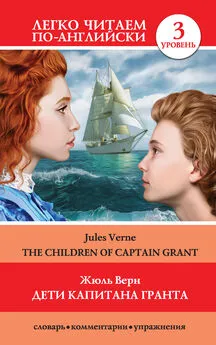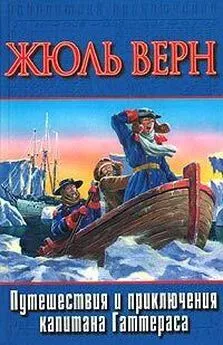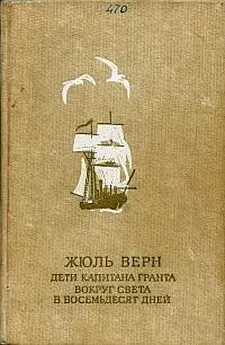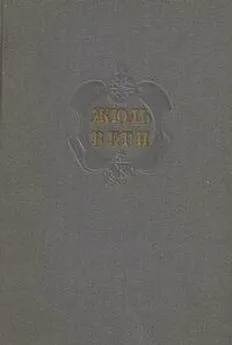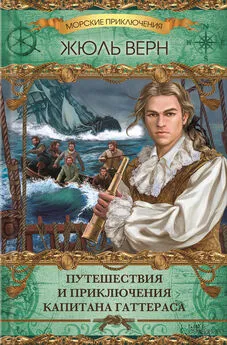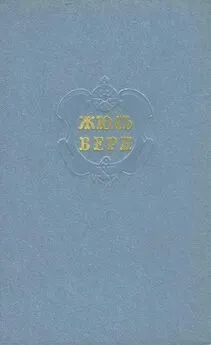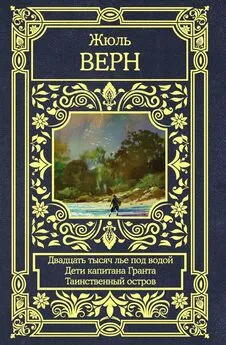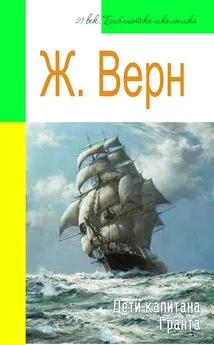Жюль Верн - Дети капитана Гранта / The Children of Captain Grant
- Название:Дети капитана Гранта / The Children of Captain Grant
- Автор:
- Жанр:
- Издательство:неизвестно
- Год:2019
- Город:Москва
- ISBN:978-5-17-115791-3
- Рейтинг:
- Избранное:Добавить в избранное
-
Отзывы:
-
Ваша оценка:
Жюль Верн - Дети капитана Гранта / The Children of Captain Grant краткое содержание
Дети капитана Гранта / The Children of Captain Grant - читать онлайн бесплатно ознакомительный отрывок
Интервал:
Закладка:
Жюль Верн / Jules Verne
Дети капитана Гранта / The Children of Captain Grant
Адаптация текста, упражнения, словарь и комментарии С.А. Матвеева
© Матвеев С.А., адаптация текста, коммент., упражнения и словарь, 2019
© ООО «Издательство АСТ», 2019
Chapter I. The Shark
On the 26th of July, 1864, a magnificent yacht was steaming along the North Channel at full speed. The name of the yacht was the Duncan [1] Duncan – «Дункан» ( название яхты )
, and the owner was Lord Glenarvan [2] Glenarvan – Гленарван
, the most distinguished member of the Royal Thames Yacht Club, famous throughout the United Kingdom. Lord Edward Glenarvan was on board with his young wife, Lady Helena [3] Helena – Элена
, and one of his cousins, Major McNabbs [4] McNabbs – МакНабс
.
The Duncan was newly built, and had been making a trial trip. It was returning to Glasgow [5] Glasgow – Глазго
, when the sailor on watch caught sight of an enormous fish sporting in the wake of the ship. Lord Edward, who was immediately apprised of the fact, came up a few minutes after with his cousin, and asked John Mangles [6] John Mangles – Джон Манглс
, the captain, what sort of an animal he thought it was.
“Well, since your Lordship asks my opinion,” said Mangles, “I think it is a shark, and a large one.”
“A shark at these shores!”
“There is nothing at all improbable in that,” returned the captain. “This fish belongs to a species that is found in all latitudes and in all seas. It is the hammer-headed shark [7] hammer-headed shark – рыба-молот
, if I am not much mistaken. But if your Lordship has no objections, we’ll soon haul up the monster and find out what it really is.”
“What do you say, McNabbs? Shall we try to catch it?” asked Lord Glenarvan.
“If you like,” was his cousin’s cool reply.
“The more of those terrible creatures that are killed the better, at all events [8] at all events – в любом случае
,” said John Mangles.
“Very well, set to work, then [9] set to work, then – тогда приступайте
,” said Glenarvan.
Lady Helena soon joined her husband on deck. The sea was splendid, and every movement of the shark was distinctly visible. In obedience to the captain’s orders, the sailors threw a strong rope over the starboard side of the yacht, with a big hook at the end of it. The bait took at once, though the shark was full fifty yards distant. This was evidently a monster.
The passengers and sailors on the yacht were watching all the animal’s movements with the liveliest interest. It soon came within reach of the bait, turned over on its back. In a few minutes more the shark was thrown on the deck. A man came forward immediately, and approaching it cautiously, with one powerful stroke cut off its tail.
The sailors knew the contents of its stomach might be worth investigation. The fish was still breathing; it measured ten feet [10] 1 фут = около 30 сантиметров
in length, and weighed more than six hundred pounds [11] 1 фунт = около 409 граммов
.
The huge brute was soon ripped up in a very unceremonious fashion [12] in a very unceremonious fashion – без всяких церемоний
. The hook had fixed right in the stomach, which was found to be absolutely empty, and the disappointed sailors were just going to throw the remains overboard, when the boatswain’s attention was attracted by some large object.
“What’s this?” he exclaimed.
“It’s just a rock that the shark has got in his inside and couldn’t digest,” said another of the crew.
“Hold your tongues, all of you!” said Tom Austin [13] Tom Austin – Том Остин
, the mate [14] the mate – помощник капитана
of the Duncan . “Don’t you see the animal is a drunkard and has not only drunk the wine, but swallowed the bottle?”
“What!” said Lord Glenarvan. “Do you mean to say it is a bottle that the shark has got in his stomach?”
“Ay, it is a bottle, most certainly,” replied the boatswain, “but not just from the cellar.”
“Bring it to the cabin,” said Lord Glenarvan, “for bottles found in the sea often contain precious documents.”
Tom obeyed, and in a few minutes brought in the bottle and laid it on the table, at which Lord Glenarvan and the Major were sitting ready with the captain, and, of course, Lady Helena. For a moment they all sat silent, gazing at this frail relic, wondering if it told the tale of sad disaster, or brought some message from a sailor.
However, the only way to know was to examine the bottle, and Glenarvan set to work without further delay, carefully and minutely. He commenced by a close inspection of the outside. The neck was long and slender, the sides were very thick, and strong enough to bear great pressure.
“We may affirm it comes from a long way off. Look at those petrifactions all over it, these different substances almost turned to mineral, we might say, through the action of the salt water! This waif had been tossing about in the ocean a long time before the shark swallowed it.”
“I quite agree with you,” said McNabbs. “I dare say this bottle has made a long voyage.”
“But I want to know where from?” said Lady Glenarvan.
“Wait a little, dear Helena, wait; but if I am not much mistaken, this one will answer all our questions,” replied her husband, beginning to scrape away the hard substances round the neck. Soon the cork made its appearance, but much damaged by the water.
“That’s vexing,” said Lord Edward, “for if papers are inside, they’ll be in a pretty state!”
“If your Lordship would simply break off the neck, I think we might easily withdraw the papers,” suggested John Mangles.
“Try it, Edward, try it,” said Lady Helena.
The bottle was broken. There were pieces of paper inside.
Chapter II. The Three Documents
All that could be discovered, however, on these pieces of paper was a few words here and there, the remainder of the lines. Lord Glenarvan examined them attentively for a few minutes, turning them over on all sides, holding them up to the light, and trying to decipher, while the others looked on with anxious eyes. At last he said: “There are three distinct documents here, apparently copies of the same document in three different languages. Here is one in English, one in French, and one in German.”
“But can you make any sense out of them?” asked Lady Helena.
“That’s hard to say, my dear Helena, the words are quite incomplete.”
“Perhaps the one may supplement the other,” suggested Major McNabbs.
“Very likely they will,” said the captain.
“That’s what we will do,” rejoined Lord Glenarvan; “but let us proceed methodically. Here is the English document first.”
All that remained of it was the following:

“There’s not much to be made out of that,” said the Major, looking disappointed.
“No, but it is good English anyhow,” returned the captain.
“There’s no doubt of it,” said Glenarvan. “The words SINK, ALAND, LOST are entire; SKIPP is evidently part of the word SKIPPER, and that’s what they call ship captains often in England. There seems a Mr. Gr. mentioned, and that most likely is the captain of the shipwrecked vessel.”
“Well, come, we have made out a good deal already,” said Lady Helena.
“Yes, but unfortunately there are whole lines wanting [15] there are whole lines wanting – не хватает целых строк
,” said the Major, “and we have neither the name of the ship nor the place where it was shipwrecked.”
“We’ll get that by and by [16] by and by – постепенно
,” said Edward.
“Oh, yes; there is no doubt of it,” replied the Major, who always echoed his neighbor’s opinion. “But how?”
“By comparing one document with the other.”
“Let us try them,” said his wife.
The second piece of paper was even more destroyed than the first; only a few scattered words remained here and there.
It ran as follows:

“This is written in German,” said John Mangles the moment he looked at it.
“And you understand that language, don’t you?” asked Lord Glenarvan.
“Perfectly.”
“Come, then, tell us the meaning of these words.”
The captain examined the document carefully, and said:
“Well, here’s the date of the occurrence first: 7 Juni means June 7; and if we put that before the figures 62 we have in the other document, it gives us the exact date, 7th of June, 1862.”
“Great!” exclaimed Lady Helena. “Go on, John!”
“On the same line,” resumed the young captain, “there is the syllable GLAS and if we add that to the GOW we found in the English paper, we get the whole word GLASGOW at once. The documents evidently refer to some ship that sailed out of the port of Glasgow.”
“That is my opinion, too,” said the Major.
“The second line is completely effaced,” continued the Captain; “but here are two important words on the third. There is ZWEI, which means TWO, and ATROSEN or MATROSEN, the German for SAILORS.”
“Then I suppose it is about a captain and two sailors,” said Lady Helena.
“It seems so,” replied Lord Glenarvan.
“I must confess, your Lordship, that the next word puzzles me. I don’t understand it. Perhaps the third document may throw some light on it. The last two words are plain enough. BRINGT IHNEN means BRING THEM; and, if you recollect, in the English paper we had SSISTANCE, so by putting the parts together, it reads thus, I think: ‘ BRING THEM ASSISTANCE [17] BRING THEM ASSISTANCE – «Окажите им помощь»
.’”
“Yes, that must be it,” replied Lord Glenarvan. “But where are the poor fellows? We have not the slightest indication of the place, meantime, nor of where the catastrophe happened.”
“Perhaps the French copy will be more explicit,” suggested Lady Helena.
“Here it is, then,” said Lord Glenarvan, “and that is in a language we all know.”
The words it contained were these:

“There are figures!” exclaimed Lady Helena. “Look!”
“Let us go steadily to work,” said Lord Glenarvan, “and begin at the beginning. I think we can make out from the incomplete words in the first line that a three-mast vessel is in question [18] a three-mast vessel is in question – речь идёт о трёхмачтовом судне
, and there is little doubt about the name; we get that from the fragments of the other papers; it is the Britannia [19] Britannia – «Британия» ( название судна )
. As to the next two words, GONIE and AUSTRAL, it is only AUSTRAL that has any meaning to us.”
Интервал:
Закладка:
